Search
Remove Ads
Advertisement
Summary 
Loading AI-generated summary based on World History Encyclopedia articles ...
Search Results
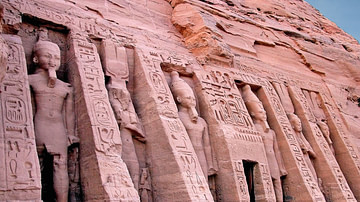
Definition
Abu Simbel
Abu Simbel is an ancient temple complex, originally cut into a solid rock cliff, in southern Egypt and located at the second cataract of the Nile River. The two temples which comprise the site were created during the reign of Ramesses II...
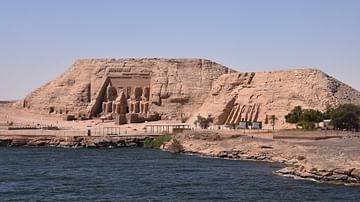
Article
Sailing on Lake Nasser towards Abu Simbel
In ancient times, the First Cataract at Aswan marked the southern frontier of Egypt. Beyond lay the land of Nubia, which stretched along the river Nile from the First Cataract southwards for about 250 kilometres (155 mi). This region, known...

Definition
Abu Bakr
Abu Bakr (l. 573-634 CE, r. 632-634 CE) was an early convert of Islam; he was a close friend and confidant of the Islamic Prophet Muhammad, and became the first caliph of the Islamic empire – a successor to Muhammad's temporal position but...
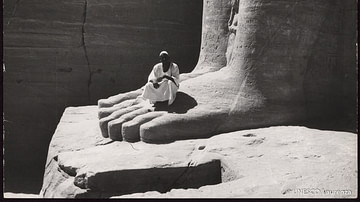
Collection
UNESCO's Nubia & Abu Simbel Campaign
This collection is really dear to us as it is the fruit of our new collaboration and partnership with the UNESCO Archives. They have digitized a vast amount of resources that can be found on their platform and you can read all about their...
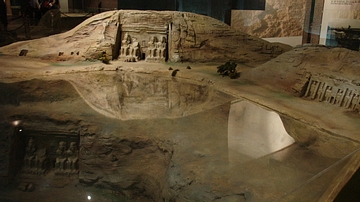
Image
Abu Simbel - Plastic
Final plastic, which shows the original position of the temples of Abu Simbel (1300 BC) and the final position after the grand relocation.

Image
Scaffolding Arch of Abu Simbel Great Temple, 1966
International campaign for the safeguarding of the Nubian monuments launched by UNESCO. In this photo, you can see the first arch of the scaffolding for the dome of the Great Temple of Abu Simbel under erection on its new site. Abu Simbel...
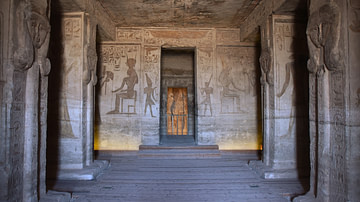
Image
Abu Simbel, Interior of the Temple of Hathor
The Temple of Hathor or "Small Temple" was constructed during the reign of Ramesses II (c. 1279 - c. 1213 BCE). It was dedicated to the goddess Hathor and Queen Nefertari, Ramesses' favourite wife. The temple's hypostyle hall is supported...
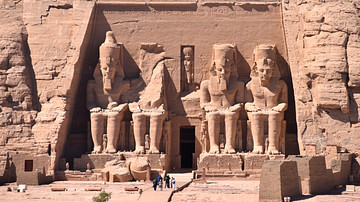
Image
Abu Simbel, Facade of the Temple of Ramesses II
The Great Temple at Abu Simbel was built by Ramesses II and completed around 1264 BCE. It stands 98 feet (30 metres) high and 115 feet (35 metres) long with four seated colossi flanking the entrance, two to each side, depicting Ramesses II...
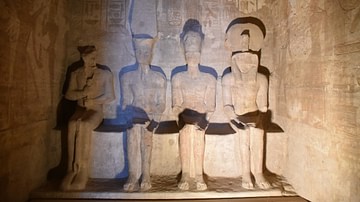
Image
Abu Simbel, Sanctuary of the Temple of Ramesses II
In the sanctuary inside the Temple of Ramesses II (Great Temple) at Abu Simbel are rock-cut sculptures of four seated figures: Ra-Horakhty, the deified king Ramesses, and the gods Amun Ra and Ptah. The architects of ancient Egypt in the 13th...
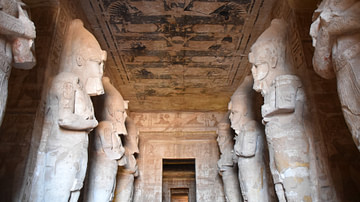
Image
Abu Simbel, Interior of the Temple of Ramesses II
The hypostyle hall of the Temple of Ramesses II at Abu Simbel is 18 m (59 ft) long and 16.7 m (55 ft) wide and is supported by eight massive pillars depicting the deified Ramesses linked to the god Osiris. The temple's interior is decorated...